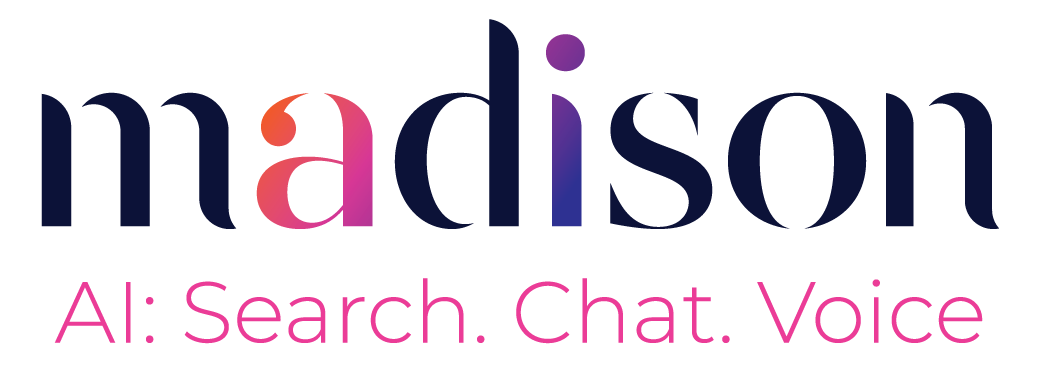What is AI?

Artificial Intelligence (AI) broadly refers to systems that are capable of performing tasks which, when done by humans, would require intelligence.
This can include recognising speech or images, understanding language, making predictions, automating decision-making and learning from data to improve performance over time. In a business context, AI gives organisations the ability to do more than just automate – it enables them to gain insights, elevate user-experience and re-imagine workflows.
A brief journey of AI over the past decade
Over the last ten years the progress in AI has been rapid:
- Mid-2010s – AI was primarily rule-based automation: chatbots with limited script, basic process automation (RPA). Capabilities were functional but constrained.
- Late-2010s – With advances in machine learning, neural networks and big-data architectures, AI began to make more accurate predictions and support more complex decision processes.
- Early-2020s – The rise of large language models (LLMs), powerful natural language processing (NLP) and accessible cloud-AI services meant businesses started embedding AI in analytics, customer support, personalisation and interactive experiences.
- 2020-Now – AI is now becoming a core business technology: businesses of all sizes are using AI-driven search, voice assistants, process-intelligent bots, generative content and insight engines.
- Near-future – Autonomous systems, seamless human-AI collaboration, pervasive AI in UX interfaces, and real-time predictive intelligence will become mainstream rather than experimental.
Why does it matter for business?
The advantages of adopting AI early and strategically are compelling:
- Higher productivity – AI can automate repetitive, rules-based tasks, reduce manual admin, streamline workflows and free up staff to focus on higher-value work.
- Improved accuracy and consistency – AI systems don’t tire, don’t take breaks and don’t make human-slip errors (though of course they must be correctly trained and monitored).
- Enhanced customer experience – Through intelligent chatbots, voice agents, personalised interactions and real-time support, AI elevates the way you serve users and customers.
- Better decision-making – With predictive analytics and machine learning, AI helps businesses make data-driven decisions, identify trends or issues early, and anticipate future behaviour.
- Scalability – As businesses grow, manual systems often become bottlenecks. AI-enabled systems scale more fluidly and adapt to higher volumes of interactions without proportional increases in staffing.
- Competitive advantage – Early adopters of AI can differentiate, increase speed-to-market, improve margins and create better operational resilience.
- Cost-efficiency – By reducing manual cost, improving conversion rates, reducing friction and eliminating waste, AI contributes directly to the bottom line.
How working with Madison helps you stay ahead
While AI technology is advancing fast, navigating it effectively can be challenging – there are new vendors, models, platforms and data-requirements every year. That’s where partnering with a trusted digital agency makes the difference. With Madison you benefit from:
- A strategic partner who understands both technology and business outcomes.
- Resources and experience to filter and evaluate the latest AI tools, choose those aligned with your goals, avoid hype and focus on practicality.
- The ability to integrate AI into your existing infrastructure (website, CRM, e-commerce, back-office) rather than treating it as a separate bolt-on.
- Training and change-management so your team is comfortable, confident and capable of leveraging the AI tools effectively.
- Ongoing monitoring and optimisation – we don’t just “launch and leave”; we measure, iterate and improve.
- A focus on real value: higher productivity, better user experience, stronger margins – not just ‘we made an AI bot’.

The roadmap ahead
In the next 3-5 years we expect AI to move from being a distinct “project” to being embedded across every business touch-point:
- Every website will have intelligent search, voice and chat (more on this in our next pages).
- Back-office systems will be proactively predictive: recognising issues before they happen, triggering actions automatically and learning from data flows.
- Marketing systems will evolve to offer real-time personalisation, dynamic content generation and seamless customer journeys powered by AI.
- Human-AI collaboration will go mainstream: humans will become supervisors of AI-systems, focusing on strategy, empathy, creativity – while AI handles the heavy lifting.
- Ethical, secure and explainable AI will be a differentiator: businesses that adopt AI responsibly, with correct governance and data integrity, will stand out.

Summary
AI isn’t just a technology trend – it’s rapidly becoming a business imperative. For companies that value performance, scalability, and staying ahead, integrating AI strategically can unlock new levels of productivity, innovation and competitive advantage. And by choosing Madison Web Solutions as your partner, you gain more than a supplier – you gain a trusted guide, strategist and builder for your AI journey.
Frequently Asked Questions
- What is the difference between AI and machine learning?
AI is a broad term referring to systems that perform tasks requiring human-like intelligence. Machine Learning (ML) is a subset of AI: it means algorithms that can learn from data and improve over time without being explicitly programmed for every scenario. - Does AI require a massive data-science team or large budget to adopt?
Not always. While some advanced AI initiatives do require significant data science infrastructure, many practical AI solutions (search bars, chatbots, voice agents, backend automation) can be implemented with modest budgets, especially when you already have digital systems in place. A key factor is having clean data, clear use-cases and a partner who understands deployment. - Will AI replace my staff?
In the vast majority of cases, no – AI is a tool to augment, not replace. It frees your staff from repetitive or admin-heavy tasks so they can focus on higher-value work (strategy, relationships, creativity, judgement). That said, business models will change and staff roles may evolve – which is why change-management and training are important. - How do I ensure AI is secure and ethical?
It starts with data governance, transparency, clear use-cases and monitoring. You should define the scope of what the AI system will do, ensure you have the right data protection in place, monitor performance, and regularly assess fairness, bias and accuracy. Working with a partner who understands these risks helps significantly. - What kind of return on investment (ROI) can I expect?
ROI varies by use-case, but smartly deployed AI often yields productivity gains, cost-savings and revenue uplift. For example, automating support might reduce call handling time by 30-50 %, improving conversion rates via intelligent search might boost UX and sales, and predictive intelligence might reduce customer churn. The key is tying the AI initiative to measurable business metrics and iterating.
Write
Get in touch
The Old Bank,
239 South Coast Road,
Peacehaven,
BN10 8LD
Our Reviews
